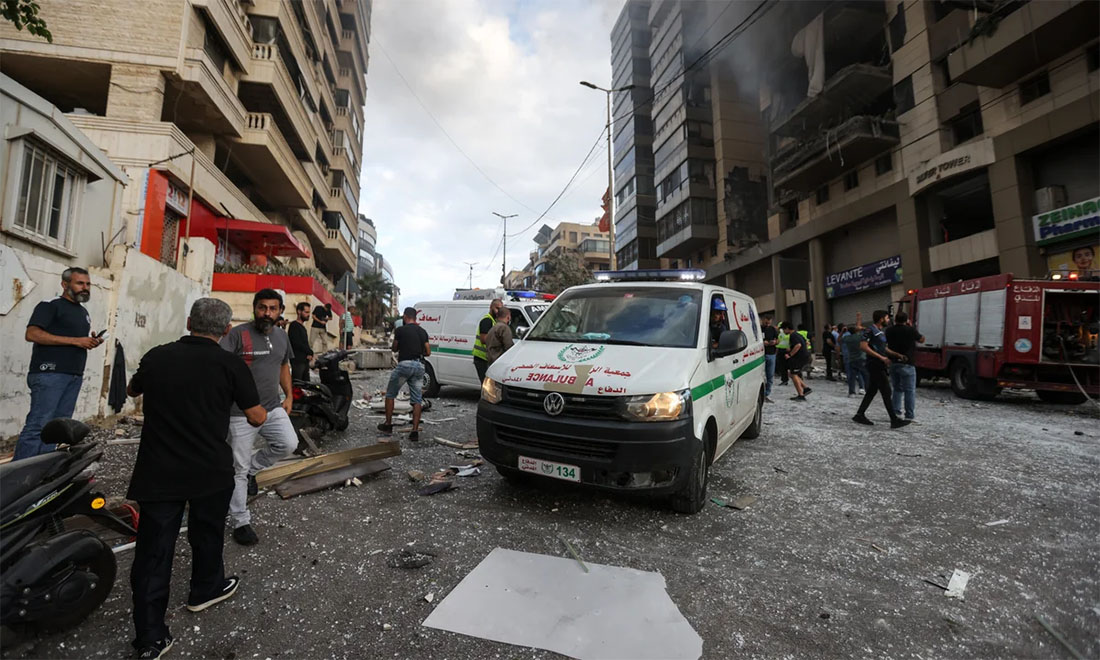Photo Credit: Getty Images
While chaos escalates across the Lebanon-Israel border, the toll on medical personnel has reached an alarming level, with more than 50 healthcare workers killed since late September. The crisis hit a new peak on Friday when Israeli airstrikes forced three major hospitals in southern Lebanon to shut down, marking a significant escalation in the targeting of medical facilities.
Dr. Ahmad Salman, head of the Lebanese Medical Association, reported last Tuesday that casualties among medical staff had already surpassed previous conflicts. "We've lost more medical personnel in three months than in the entirety of the 2006 war," he stated during an emergency press conference in Beirut.
The situation deteriorated further when Marjayoun Governmental Hospital suffered a direct hit, resulting in seven fatalities among its medical staff. Dr. Mones Kalakish, the hospital's director, described the attack: "There was no warning. Our paramedics were approaching the entrance when the strike occurred." This incident prompted the immediate evacuation of patients and closure of the facility.
According to United Nations Office for the Coordination of Humanitarian Affairs (OCHA), the impact extends beyond immediate casualties. A spokesperson noted that approximately 30% of medical facilities in southern Lebanon are now operating at reduced capacity due to staff shortages and safety concerns. "The targeting of healthcare workers has created a chilling effect, making it increasingly difficult to provide essential services," the spokesperson explained.
The crisis has roots in earlier tensions. Following the October 7 attacks, Israel expanded its military operations, with Defense Minister Yoav Gallant declaring on December 15 that the campaign would "extend wherever Hamas leadership is found." This strategy has increasingly affected civilian infrastructure in Lebanon.
Health Minister Firas Abiad presented stark statistics to Parliament on Wednesday: "Since September 23, we've documented 97 paramedics and emergency workers killed. This number tragically continues to grow daily." The Ministry's data shows that 40% of these casualties occurred during rescue operations.
Looking ahead, the Lebanese Red Cross warns of a looming healthcare crisis. "We're not just losing medical professionals; we're losing decades of experience and institutional knowledge," explained Sara Charafeddine, the organization's spokesperson. She emphasized that training new emergency responders typically takes 18 months, creating a significant gap in medical coverage.
The UN Security Council is scheduled to convene an emergency session next week to address the targeting of medical facilities. Meanwhile, remaining healthcare workers continue their vital work under increasingly dangerous conditions, with one emergency physician in Tyre stating, "We took an oath to save lives. We'll honor it, even if it costs us our own."


